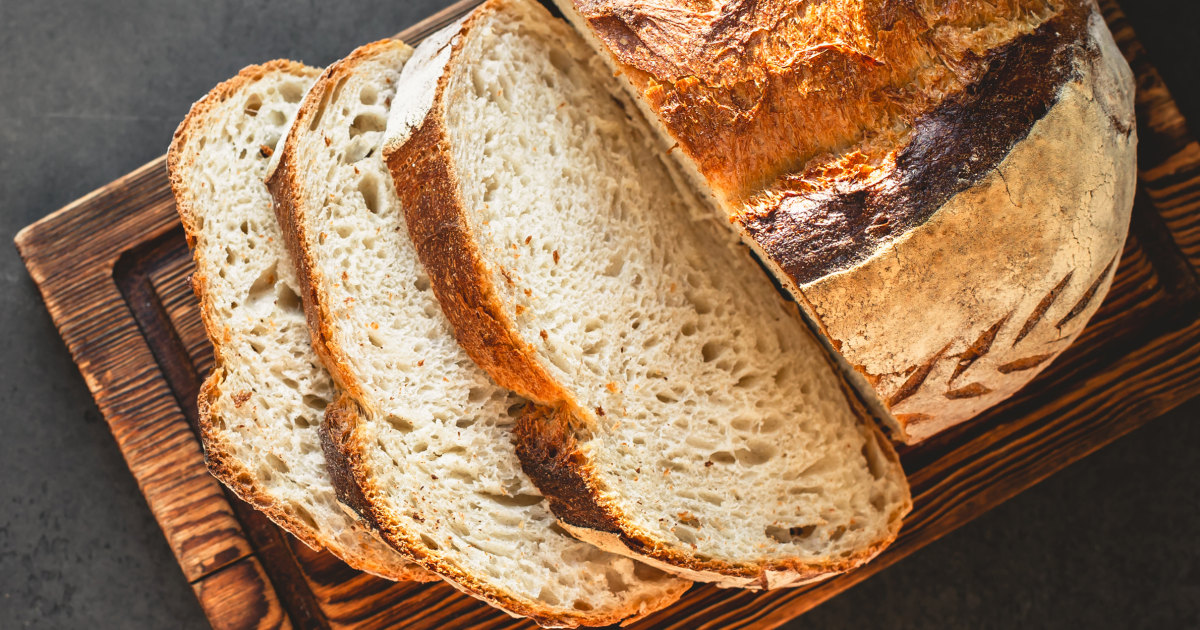

People with celiac disease can kiss without fear, even if their partner has just eaten gluten, according to a new study.
People with celiac disease have an immune response to gluten, a protein found in foods such as bread, pasta, gummy bears and soy sauce. Everyday activities often require careful calculation to avoid exposure.
Whether it’s safe to kiss someone who just ate gluten is a question that comes up frequently on Reddit. “Can celiac people kiss someone who just ate gluten?” asked a user in the r/glutenfree subreddit. Another user asked in the r/celiac subreddit, “Should I have my non celiac partner wash their mouth before.. kissing?”
Dr. Nielsen Fernandez-Becker, director of the Celiac Disease Program at Stanford University, said she’s spent hours counseling patients with celiac disease about the safety of kissing.
“I get this a lot,” Fernandez-Becker said. “Up until now, we didn’t have any study addressing it directly.”
With no official guidance, health care providers have been left to offer their best judgment when advising patients on what to do.
“We have all just given guidance based on, ‘It seems like it’s OK,’” said Anne Lee, an assistant professor of nutritional medicine at the Celiac Disease Center at Columbia University in New York City. “There were no guidelines. There was no one who had researched this.”
Lee decided to change that and carried out a study looking at whether it’s safe for someone with celiac disease to kiss someone who has just eaten gluten. Lee presented her team’s findings on Monday at Digestive Disease Week in San Diego. The findings have not yet been published in a peer-reviewed journal.
The study included 10 couples that all had one partner with celiac disease and one who didn’t have it. They wanted to see whether kissing the partner who had eaten gluten would trigger symptoms in the celiac partner.
Lee and her team tested this using two scenarios. Both started with the non-celiac partner eating 10 saltine crackers before kissing their gluten-free partners. In one instance, the couples waited five minutes before going in for a smooch. In another, the gluten-eating partner drank half a glass of water before the kiss.
The couples were asked to give the kiss their best shot. It had to be open mouth, with tongue, and it had to last close to a minute.
“We felt it needed to be like real life,” Lee said.
Post-kiss, Lee and her team collected saliva samples from all of the celiac partners and tested their urine for traces of gluten.
In the first scenario — waiting five minutes before kissing — two of the celiac participants had more than 20 parts per million of gluten in their saliva sample. (The Food and Drug Administration requires food labeled gluten-free to contain less than 20 ppm of gluten.) One was just slightly over the threshold, but the other person’s saliva contained 154 ppm of gluten post-kiss. That person also had a positive gluten urine test six hours after the kiss but didn’t have any symptoms of gluten exposure.
In the scenario in which non-celiac partners drank 4 ounces of water before the kiss, everyone’s saliva tests contained fewer than 20 ppm of gluten. That means out of all 20 kisses, just 10% resulted in traces of gluten higher than the amount deemed safe for food. Even when the celiac partners had amounts that were higher than this, they didn’t develop any symptoms.
Both methods answered the question on the minds of many people living with celiac disease: Kissing seems to be safe, especially if the person who ate the glutenous food drinks water before going in for the kiss.
“Gluten exposure has to be at a certain threshold for someone with celiac disease to react. It looks like for most of these people it was well below this threshold,” said Dr. Joseph Murray, a gastroenterologist at the Mayo Clinic, who was not involved in the research.
Although there probably are some patients who are extremely sensitive to gluten for whom kissing someone who just ate gluten could be a problem, Murray said those people are the outliers.
He added that the findings are largely what health care providers assumed based on knowledge of the disease. However, he said, it’s nice to have this study to point to when talking to patients.
Fernandez-Becker, of Stanford, said it’s a good idea for people to use their judgment and take precautions if they are worried, such as having the non-celiac partner drink water before kissing. If people have already been kissing without symptoms, they don’t need to change anything about their routine, she said.
Lee, who led the study, said, “There are so many aspects of being celiac and on the gluten-free diet that impact overall quality of life,” including social anxiety around dating.
“This is at least one thing we can say is not something you have to worry about,” she said. “Go ahead and kiss.”